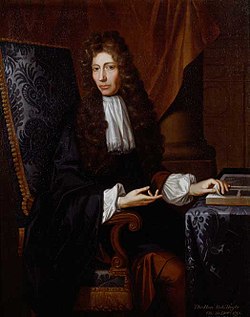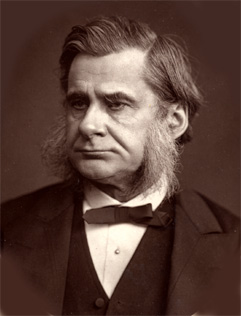User blogs
Bhrgu: The God of God Particle (by Pinaki Ganguly): It is suggested that there exists a conceptual proximity of Rishi Bhrgu with Higgs boson. It also brings Higgs field and gravity within its fold. One has to marvel at the intuitive powers of the human mind, and the Vedic Rishis are the finest example of that. This is a queue that Nature has given us and missing it will cast us in darkness. Thus it is said that, Bhrgu is the “God” of “God Particle”! http://scigod.com/index.php/sgj/article/view/179
Scientific GOD Journal Vol 3, No 3 (2012): Divine Quantum Information Structure, Synchronicity & Luminous Ground
Table of Contents http://scigod.com/index.php/sgj/issue/view/21
Articles
The Physical Universe as a Divine Quantum Information Structure (by Peter Kohut)
Synchronicity: When Cosmos Mirrors Inner Events (by Iona Miller)
Luminous Ground: The Zero with a Thousand Faces (by Iona Miller)
Essays
Bhrgu: The God of God Particle (by Pinaki Ganguly)
Book Review
Review of Thomas S. Kuhn's Book: The Structure of Scientific Revolutions (by Stephen P. Smith)
Review of D. S. Clarke's Book: Panpsychism and the Religious Attitude (by Stephen P. Smith)
Review of Henri Bergson's Book: Creative Evolution (by Stephen P. Smith)
Review of Donald C. Austin's Book: Creative Evolution Revisited: A New Theological Theory of Evolution (by Stephen P. Smith)

SIR ROBERT BOYLE (1627-1691), founder of Modern Chemistry
Boyle’s most significant religious works are Some Considerations Touching the Style of the Holy Scriptures (1661), The Excellency of Theology, Compared with Natural Philosophy (1674), and The Christian Virtuoso (1690). In his will Robert Boyle left funds for eight annual lectures (the famous Boyle Lectures, which still continue) “for proving the Christian Religion against notorious Infidels.”
1. “When with bold telescopes I survey the old and newly discovered stars and planets, when with excellent microscopes I discern the unimitable subtility of nature’s curious workmanship; and when, in a word, by the help of anatomical knives, and the light of chemical furnaces, I study the book of nature, I find myself oftentimes reduced to exclaim with the Psalmist, ‘How manifold are Thy works, O Lord! In wisdom hast Thou made them all!’ ” (Boyle, as cited in Woodall 1997, 32).
2. In The Excellency of Theology (1674), Boyle stated: “The vastness, beauty, orderliness of heavenly bodies, the excellent structure of animals and plants, and other phenomena of nature justly induce an intelligent, unprejudiced observer to conclude a supreme, powerful, just, and good Author.” (Boyle, as cited in Seeger 1985, 183-184).
3. Boyle never saw any conflict between the Christian religion and Philosophy. (By the term “Philosophy” seventeenth-century writers mean what we understand by the concept “Science” today; see Woodall 1997). Boyle wrote: “If we lay aside all the irrational opinions, that are unreasonably fathered on the Christian religion, and all erroneous conceits repugnant to Christianity, which have been groundlessly fathered upon Philosophy, the seeming contradictions betwixt Divinity and true Philosophy, will be but few, and the real ones none at all.” (Boyle, as cited in Woodall 1997, 32).

THOMAS H. HUXLEY (1825-1895), English biologist and evolutionist, famous as “Darwin’s bulldog”
1. In his article Science and Morals (1886), Huxley stated:
“The student of nature, who starts from the axiom of the universality of the law of causation, cannot refuse to admit an eternal existence; if he admits the conservation of energy, he cannot deny the possibility of an eternal energy; if he admits the existence of immaterial phenomena in the form of consciousness, he must admit the possibility, at any rate, of an eternal series of such phenomena; and, if his studies have not been barren of the best fruit of the investigation of nature, he will have enough sense to see that when Spinoza says, ‘Per Deum intelligo ens absolute infinitum, hoc est substantiam constantem infinitis attributis,’ the God so conceived is one that only a very great fool would deny, even in his heart. Physical science is as little Atheistic as it is Materialistic.” (Huxley 1893-94, Collected Essays, Vol. IX, p. 140).
2. “The more I know intimately of the lives of other men (to say nothing of my own), the more obvious it is to me that the wicked does not flourish nor is the righteous punished. But for this to be clear we must bear in mind what almost all forget, that the rewards of life are contingent upon obedience to the whole law – physical as well as moral – and that moral obedience will not atone for physical sin, or vice versa.
The ledger of the Almighty is strictly kept, and every one of us has the balance of his operations paid over to him at the end of every minute of his existence.” (Huxley 1903, Vol. I, Ch. 1.16).
"In a letter to Kingsley, Huxley said that he believed in 'the Divine Government' of the universe." (Goudge 1967, Vol. IV, p. 103).
3. In “On Providence” (An Apologetic Irenicon, 1892), Huxley wrote:
“If the doctrine of a Providence is to be taken as the expression, in a way ‘to be understanded of the people,’ of the total exclusion of chance from a place even in the most insignificant corner of Nature; if it means the strong conviction that the cosmic process is rational; and the faith that, throughout all duration, unbroken order has reigned in the universe – I not only accept it, but I am disposed to think it the most important of all truths. As it is of more consequence for a citizen to know the law than to be personally acquainted with the features of those who will surely carry it into effect, so this very positive doctrine of Providence, in the sense defined, seems to me far more important than all the theorems of speculative theology.” (Huxley 1903, Vol. III, Ch. 3.9; see also Coley & Hall 1980, 33).
